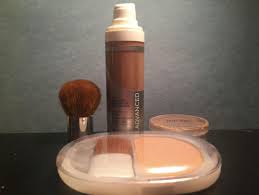For many years, people of color have been told time and time again that “diversity doesn’t sell.” But now when I turn on my TV, I see more and more people who look like me than previous generations. Even though we have been making progress in on-screen depictions of different cultures, it doesn’t help if we are not seeing them for more than 10 seconds at a time. Many companies still hold onto the generic beauty standards that society created many years ago. Pop culture has played a huge role in romanticizing the idea that without a certain set of predetermined traits (i.e blonde hair and blue eyes), then you are not beautiful.
In advertising, a lack of cultural representation creates a disconnect between the producer and consumer. Despite hundreds of commercials that stream daily, it is very unlikely that you will see different cultures displayed when big-name companies are trying to make a profit. Nevertheless, research has shown that most of the profit comes from minority groups. According to research from Essence magazine’s Smart Beauty panel, black women shell out $7.5 billion on beauty products every year, spending 80 percent more on cosmetics and twice as much on skincare as other consumers.
The main group purchasing these products have little specifically created for them. We can’t even see people who look like us advertising the products we are buying!
I think it is incredible how we as a society are still exercising prejudice in areas like beauty. I can’t stand being told that I can’t wear a certain shade of eyeshadow because “it doesn’t work with my skin,” or that I can’t purchase lipstick because it’s “a white-girl color.” Ads like this are a constant reminder that no matter how far we think we are traveling, we never actually arrive at the destination.
The lack of diversity displayed in advertising makes you wonder whether companies actually support diversity in mainstream cultural representation. Light should not mean right — period — and we need to address the severity of this issue because it affects you and me. The disgust I feel toward big-name companies that continue to only cater toward white women is immeasurable. It is almost as if we are being deemed less valuable or second best if we aren’t light-skinned.
Last January, New York-based makeup company Tarte experienced backlash for their shape tape foundations’ lack of diversity. The insensitivity to darker complexions showed a clear bias toward producing beauty products for people with lighter complexions. The options for people of color paled in comparison to options available to those with lighter skin.
https://www.instagram.com/p/Bd35KIRn6jN/
The lack of options makes people like me with darker complexions feel cast out. My makeup should not make me feel like an outsider. Beauty is supposed to be something that everyone, no matter what ethnicity or gender, can enjoy without fear of being denied. Yet in 2018, we are being robbed the right to beauty.
There have been some notable accomplishments in the makeup industry for darker skin types. The creation of lines like Rihanna’s Fenty beauty and Fashion Fair cater to richer tones, and occasionally you see women of color representing a line or brand. In 2016, Covergirl hired singer and actress extraordinaire Zendaya as the spokesperson for “Clean Matte BB Cream.” They used the star to attract the demographic that up until then felt like they were being ignored by society.
But these small steps are not nearly enough. It’s not enough to put a colored woman on the face of something and assume the problem is solved. Brands have to be willing to back up this movement by exercising inclusion.
As a young black woman in America, this problem is present in my daily life. It’s the added cost of purchasing two foundations because, unlike those with lighter complexions, my skin tone does not come in a bottle. It’s having to take extra time dabbing and mixing in a desperate attempt to get a shade that isn’t manufactured. It’s the anger I experience in creating my concoction, wondering why they don’t cater to me, silently praying as I walk to the mirror to determine if I have captured the shade deemed not good enough to make a profit. It’s leaving my house with the constant reminder that, according to society, I am not beautiful. The skin worn by the proudest women and men of our world cannot be sold for generations to come — all because they are not light enough.
Despite the limited progress, this is a problem that has gone on for far too long. Makeup companies decrease the value of the colored image in a way that resonates with everyone who has experienced it. We must take action to ensure that beauty is celebrated in every color. It is time that we as a society embrace who we are and what we look like. It is time to lay the foundation for inclusion. Beauty is not defined by one person. We are all beautiful, and it’s about time society got the message.
Sydney, 15, goes to Rockdale Magnet School for Science and Technology, loves writing and musical theater.
Photo by Sydney Palmer




